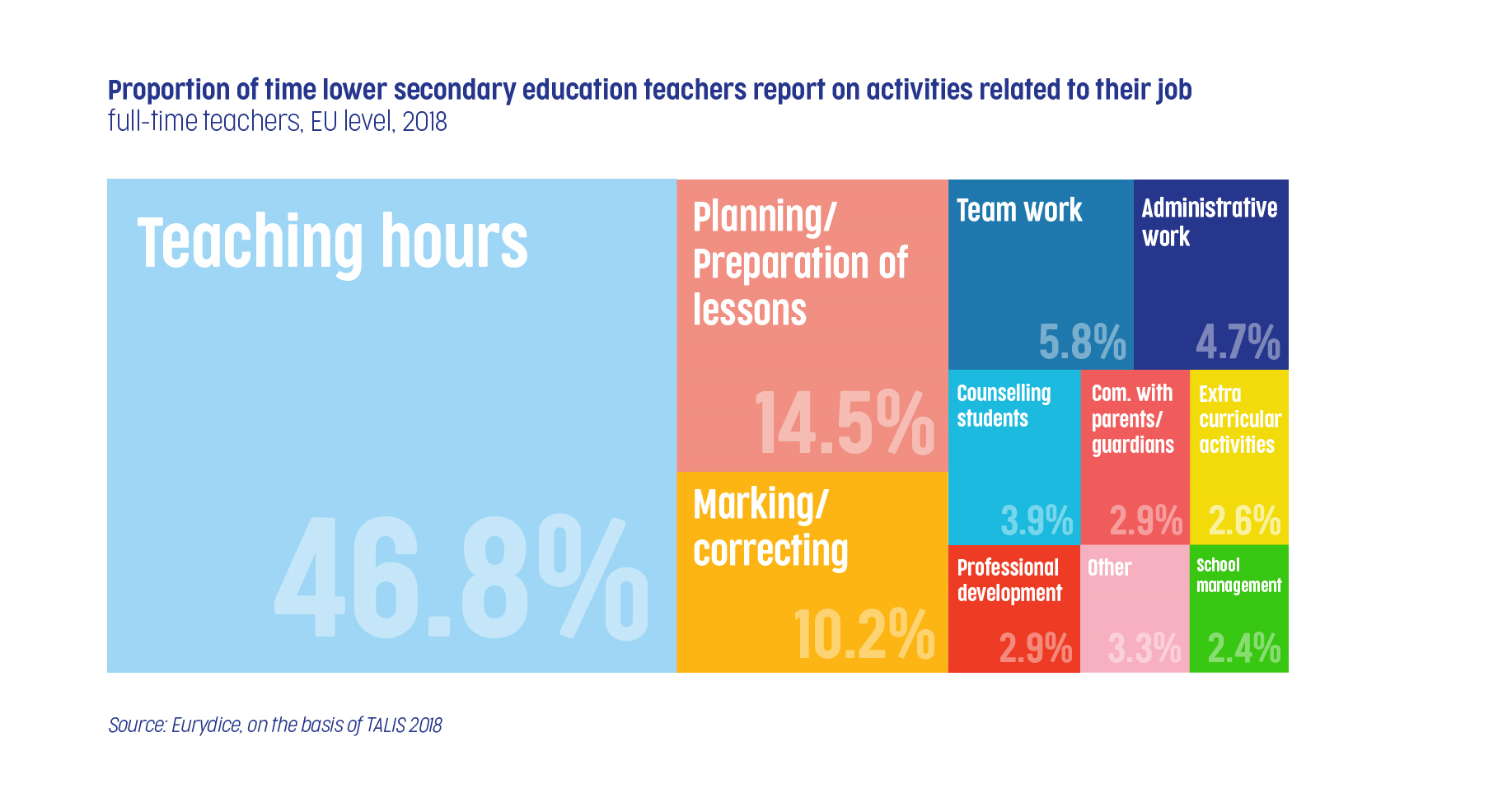Not only teaching – the hidden workload in the teaching profession
To raise the status and attractiveness of the teaching profession at all levels and sectors of education in Europe, ETUCE and its 127 member organisation from 51 countries representing over 11 million teachers have set out 10 key demands to challenge education policy makers ensure publicly funded education systems are well staffed to provide quality public education for all.

This month, the ETUCE campaign "Make Teaching Attractive" delves into the critical issues in ensuring workload control and promoting work-life balance for education staff at all levels, shedding light on these unseen aspects of the teaching profession and advocates for measures to alleviate the strain on teachers. While teaching has long been acknowledged as a demanding profession, too often, the true extent of the workload remains hidden from public view. With Europe currently facing a sharp teacher shortage, high workloads and unsustainable work-life balance are central issues for recruiting and retaining qualified teachers.
Not only teaching – the hidden workload in the teaching profession
At all levels of education, beyond classroom instruction, teachers are burdened with administrative tasks, lesson planning, grading, and extracurricular responsibilities. When analysing the workload of secondary education teachers in Europe, Eurydice data underlines that teaching constitutes only 46,8% of their work activities while planning/preparing lessons and marking corrections take up to 25% of teachers’ jobs.

For these reasons, the ETUCE campaign demands that education authorities, employers, and the education community replace the term ‘teaching hours’ with ‘working hours’ as an essential shift for reducing workloads and the amount of unpaid overtime for teachers.
In addition, while some European data on teachers’ workloads are available concerning teachers’ workloads at the secondary education level, ETUCE remarks that EU-wide data and analysis are still lacking for other education levels.
Therefore, ETUCE calls on the European Union and national education authorities across Europe to improve efforts to produce cross-country data on teachers’ workload at all levels of education to understand the real dimension of their work-related burden.